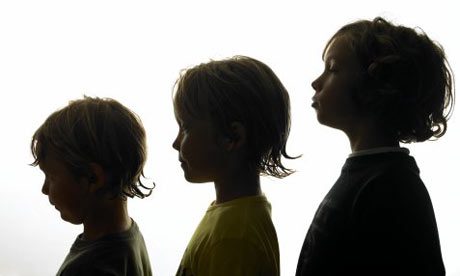Hi All!
Hope you have read the Part I of my previous blog “Know your Personality Timeline”. If you haven’t read it yet, I would suggest you to read that too! This way you will have a good grab over this blog also. We were talking about how your personality develops over your life span, how you can shape it into a meaningful way and how personality fixation/defects can lead to serious psychological issues in future.
Do you know an interesting thing about personality? Though it is shaped by several factors such as genetics, family environment, social set up, environment etc… it is also significantly influenced by your birth order. Whether you are the first-born child, second born or the youngest one, whether you are the only child of your parents, all this also plays a vital role in your personality development. Eminent Austrian Psychiatrist Alfred Adler was the first person to lay emphasis on this. According to him, “birth order can leave an indelible impression on an individual’s style of life, which is one’s habitual way of dealing with the tasks of friendship, love, and work. According to Adler, firstborns are “dethroned” when a second child comes along, and this may have a lasting influence on them.” Some studies on this reflect that first-borns are generally having personality styles related to conservatism, conscientiousness and achievement orientation. On the other hand, the personality characteristics of the ones born later are more oriented towards rebelliousness, openness, and agreeableness.
Then another noted Psychologist and Personality Theorist named as Erik Erikson propounded the ego principle. He was of the opinion that our personality develops at its own timing and different stages. At different stages an individual is psychologically connected to different stratas of the society (family, peers, etc.). The mutual interactions with one another, day-to-day life with one another play a vital role in shaping one’s personality. Psychological problems arise if the crises at different stages are not effectively dealt with. Here is an epitome of Erikson’s theory of personality:
| Stage (age) | Psychosocial crisis | Significant relations | Psychosocial modalities | Psychosocial virtues | Maladaptations & malignancies |
| I (0-1) — infant | trust vs. mistrust | mother | to get, to give in return | hope, faith | sensory distortion — withdrawal |
| II (2-3) — toddler | autonomy vs. shame and doubt | parents | to hold on, to let go | will, determination | impulsivity — compulsion |
| III (3-6) — preschooler | initiative vs. guilt | family | to go after, to play | purpose, courage | ruthlessness — inhibition |
| IV (7-12 or so) — school-age child | industry vs. inferiority | neighborhood and school | to complete, to make things together | competence | narrow virtuosity — inertia |
| V (12-18 or so) — adolescence | ego-identity vs. role-confusion | peer groups, role models | to be oneself, to share oneself | fidelity, loyalty | fanaticism — repudiation |
| VI (the 20’s) — young adult | intimacy vs. isolation | partners, friends | to lose and find oneself in a another | love | promiscuity — exclusivity |
| VII (late 20’s to 50’s) — middle adult | generativity vs. self-absorption | household, workmates | to make be, to take care of | care | overextension — rejectivity |
| VIII (50’s and beyond) — old adult | integrity vs. despair | mankind or “my kind” | to be, through having been, to face not being | wisdom | presumption — despair |
Therefore folks, the key to a better and meaningful personality development lies in our hands. The way we handle our lives, the way we nurture our future generations and the way we help others in their life’s journey has a tremendous role in developing personality in a genuine, meaningful and all-round manner.
“Man’s main task in life is to give birth to himself, to become what he potentially is. The most important product of his effort is his own personality.” (Erich Fromm)
Best wishes,
Sareeta




[…] Therefore, build your personality into an impressive and worthwhile manner. Let it shine and help other shine too. If you are interested in knowing more about the development of your personality, then check out my next blog post. […]